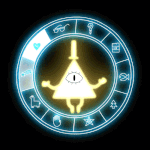|
MonsieurChoc posted:I'm (maybe) gonna join a Requiem 1E game after all these years. I have to look at that wreck every single day at my job. I lost some money when it fell (and still am) but not my livelihood or life by any means. I'd say you're in the right spirit to include it as part of your backstory. You're at least looking at the raw irony of being turned into a monster while the monstrous greed of humans is what put you in the situation that led to your transformation. Having to look at that husk every night while you're in the Quarter, or even just on the overpass going by, is always grim. When people ask me what happen, I end the story every time with "corruption kills". Because, honestly, the greed and corruption of everyone involved goes staggeringly deep. Here's a good article about it to give you some further context: http://antigravitymagazine.com/feature/built-to-kill/ I'm riffing because I'm high at this point, but I sometimes think of the collapsed building like the corpse of a monster.
|
|
|
|

|
| # ? May 31, 2024 22:44 |
|
do NOT jack off posted:I have to look at that wreck every single day at my job. I lost some money when it fell (and still am) but not my livelihood or life by any means. I'd say you're in the right spirit to include it as part of your backstory. You're at least looking at the raw irony of being turned into a monster while the monstrous greed of humans is what put you in the situation that led to your transformation. Yeah, that's pretty much what I was going for. The world is very depressing sometimes and there's more than one way of dealing with it.  Edit: I finished the article and I'm even more mad than I was when I came up with the character holy poo poo. MonsieurChoc fucked around with this message at 02:58 on Mar 13, 2020 |
|
|
|
Just putting on the new page (second and final attempt! I swear!), a link to the recruitment for a new DEVIANT and MORTALSgame: https://forums.somethingawful.com/showthread.php?threadid=3916561 COME KILL NAZIS WITH US!
|
|
|
|
My currently-drawing-to-a-close (third and final epilogue session inbound, this time I accidentally invented Kira Yoshikage as an academic) Mage campaign never really used Scrutiny; there were plenty of useful subsystems but that one we bounced off of.
|
|
|
|
So I've never run a WoD game before, but I'm interested in trying Hunter: The Vigil specifically. Regarding Conspiracies; Are they strictly intended to be something you'd work your way up to joining and not have any real connection to beforehand? Or would a character having some kind of connection from the start work, but they'd be on a trial basis or something? Also which are all the books that are needed for new world of darkness to play Hunter? Cuntellectual fucked around with this message at 05:25 on Mar 13, 2020 |
|
|
|
|
Cuntellectual posted:So I've never run a WoD game before, but I'm interested in trying Hunter: The Vigil specifically. No, not really. You're meant to be either completely clueless from the start or a member of a Compact or a Conspiracy. You can totally do the working your way up thing but it's intended to be able to play a game where a PC starts as a member of a Conspiracy full of secrets. You can even have characters with wildly different backgrouns working together.
|
|
|
|
Cuntellectual posted:So I've never run a WoD game before, but I'm interested in trying Hunter: The Vigil specifically. You can start being in a Conspiracy from the get go. Just depends on what type of campaign you want. As for books: you can wait for Hunter 2e to come out pretty soon, or you can go with old 1e stuff if you have access to it. Hunter 2e will have everything you need as a single book. Otherwise, 1e requires the Chronicles of Darkness core rules, and the Hunter the Vigil core book. If you want the best bang for your book, maybe get the Chronicles of Darkness 2e core rules and covert back to Hunter on the fly - the only thing that will require any significant conversion is weapon ratings and that's very straightforward. edit: I should say that you can have a fun 'mortal investigators' game with just the core book of either edition and there's a bunch of stuff along those lines in 1e material. bewilderment fucked around with this message at 05:33 on Mar 13, 2020 |
|
|
|
PHIZ KALIFA posted:i love people whose problems are basically "Anxiety, but like I'm ordering in Starbucks" I do wonder whether wi-fi sensitivity and similar comes down to people getting anxiety symptoms or similar and then being so invested in the idea that I Am Not Mentally Ill Because Then I Would Be Insane And I Am Same, Thank You that they on some level (likely not even consciously) cast about for something, anything to ascribe the symptoms to.
|
|
|
|
Ferrinus posted:WoD 2E is replete with game systems which are individually cool and evocative but collectively really big loads on player memory and ST attention that probably add less to the game than they cost in time. I'm thinking here of stuff like Vampire's predatory aura clash systems and like 65% of Werewolf's rules text. I'm happy that in 2e you don't have to clash with every vampire the first time you meet them (I think) but overall my group almost never uses clashes. Hell, there's a good amount of the system we ignore (like Doors) because it is interesting on paper but fits more with a video game.
|
|
|
|
Inzombiac posted:I'm happy that in 2e you don't have to clash with every vampire the first time you meet them (I think) but overall my group almost never uses clashes. Doors are great. I wouldn't use them for a majority of social interactions, but they are perfectly suited for the kind of dealing, pressuring, and favor-currying that goes on in the various occult mafias of the setting. Doors aren't for making friends or talking to coworkers, they're for getting someone you sorta know to do you a favor, a big one - or for convincing your target to come alone at night to a rendezvous where you can take them out. Doors are for under-the-table deals, corruption, and cons more than they're for diplomacy rolls, and they're better for it.
|
|
|
|
Yeah, the problem with Doors isn't really how they work, it's how they're presented. It's easy to read the section titled "Social Maneuvering" and come away thinking these rules are intended to be used frequently for social interactions, and they aren't. They're for important favor trading and backdoor quid-pro-quo. Similarly, hard leverage and forcing doors is presented as a little aside at the end of the section, when it's remembered at all. But forcing doors is arguably more important than opening them the normal way, because that's how you get immediate, smaller scale results, like bribing security guards to look the other way or interrogating a captive.
|
|
|
|
I've just never run into a reason why I'd need to use Doors for those small scale forcing interactions when you could just roll Presence+Intimidate and get there the same way or quicker. There was a section on Social Combat/Encounters in a 1e VtR book that was great for situations where you were trying to win an argument about a very important thing, and that was very useful in some situations. I put 2e Social Doors halfway between the single roll to deal with a short term NPC and the 1e Social Encounters in terms of weight. I feel like the goal was for it to be used with recurring NPCs, but it just seemed forced anytime I've tried to use it.
|
|
|
|
Generally the context I used it was ‘player wants something out of recurring NPC that they couldn’t reasonably get in one scene of conversation/one roll, but which isn’t impossible to get (or helps the story if they can get it)’ Given the game in question involved hunting down secret Tremere mages and assassinating them, and also one player decided to ice a Seer because he was just an unbearable monster, two major uses of Doors were to maneuver a target into doing something that didn’t immediately appear extremely dangerous to them, but which set them up badly (weakening their magical preparations, generally).
|
|
|
|
I always find it interesting that WoD games keep trying to boil physical combat down to a single roll but seem to be finding new ways to bloat social interaction.
|
|
|
|
Mendrian posted:I always find it interesting that WoD games keep trying to boil physical combat down to a single roll but seem to be finding new ways to bloat social interaction. I mean, it's hardly bloated, you just have options for actual mechanical intervention - and social interaction is supposed to get more attention in the game than combat, for most lines. So it makes sense that they would want to cut down combat and increase social crunch, so that if you want to play a low-combat game you're not wasting most of your character's mechanical options. Social 'bloat' still doesn't even come close to the degree of combat mechanics anyways.
|
|
|
|
While I appreciate Down & Dirty's inclusion, it's kind of a tucked-away  optional optional  system, whereas the actual core combat system gets all the attention and consideration from tons of other subsystems even if they're nominally social-focused. I wouldn't really characterize CoD as trying to tone down the combat focus compared to most trad RPGs, which it definitely is. system, whereas the actual core combat system gets all the attention and consideration from tons of other subsystems even if they're nominally social-focused. I wouldn't really characterize CoD as trying to tone down the combat focus compared to most trad RPGs, which it definitely is.Anyway, I took a second to bang out a one-roll Scrutiny house rule and would appreciate some critique.
|
|
|
|
That Old Tree posted:Anyway, I took a second to bang out a one-roll Scrutiny house rule and would appreciate some critique. I like the idea of boiling it down to being faster, but I think it's missing a few tricks on the purpose for how scrutiny works in the RAW. First, for very complex mysteries, they're going to be basically impossible to ever gain any sort of information about. You'll very often be rolling a chance die for complex ones. I wasn't kidding that my group put their teamwork together and broke through an Opacity 15 mystery completely. It gained them some massive information because of it. They would have earned far less information had they only broken through 5-10 levels. Why only one yantra, that's tied to gnosis. Scrutiny also isn't a spell so how does it incur paradox? So I'd go one way or the other. Either it's becoming a spell and you risk paradox and can use your yantras as dictated by gnosis, or it's not a spell and no paradox and no yantras. If it is a spell, you should be getting free reaches somehow for having a deeper understanding to try to stay system consistent. I'd stay consistent with the rest of spellcasting rules too if you end up going the spell route, where you use all the spell modifications for casting. I wouldn't restrict them from using teamwork though. This is the sort of thing that should be easier with more eyes through more lenses. I like the bonus for Obsession. I wish that came up more frequently than just beats and wisdom checks. I like the part where you're spending mana. I'd just tie it straight to gnosis though. Yeah, it's less when you're a baby mage, but that kind of makes sense that you wouldn't be able to spend as much as someone who's spent a lot of time improving their understanding. Maybe make it Gnosis+1 or +2 max. I was going back and forth on how you've done the Deep Mystery portion, and for a minute I thought it was being more restrictive on what information you needed to give, but I've realized that it still just gives you room to be inconsistent with how much info you get when you succeed. That for me is the biggest part of why you even roll for scrutiny. To determine how much/what/if any information you can figure out from just looking at traces of magic. I think the biggest loss though is not being able to break through a level or two, then come back another day to try to break through further. That and the binary nature of either you figure it out or not is unfortunate. I can see the potential for it throwing a speedbump in the way that may just not add to the story in a useful way. With the extended version you at least have the option of giving some useful info that can move the story along. I think this pass/fail version would make that more difficult for the ST to do. Maybe you don't, or can think of good ways around it, so that's definitely not a deal breaker, especially for a house rule. Just something to think about. Either way, I'd make up a bunch of different potential opacity/caster pools and see how they line up with all the +/-. Mysteries should be a thing that help move the story forward, so it does take some balancing and I like the idea to make it quicker.
|
|
|
|
Jhet posted:I like the idea of boiling it down to being faster, but I think it's missing a few tricks on the purpose for how scrutiny works in the RAW. First, for very complex mysteries, they're going to be basically impossible to ever gain any sort of information about. You'll very often be rolling a chance die for complex ones. I wasn't kidding that my group put their teamwork together and broke through an Opacity 15 mystery completely. It gained them some massive information because of it. They would have earned far less information had they only broken through 5-10 levels. Here's just a brief summary of what I thought about when coming up with the dice pools and modifiers: • A typical "specialist" starting mage has Gnosis 1 + Arcanum 3 + minimum spend of 1 Mana – 2 for Potency 2 to unveil an Opacity 1 Mystery by rolling 3 dice, or what's often considered a "minimally adequate" baseline of competence. Without changing any other factors, you can keep this level of parity fairly easily up to Opacity 3 with the 5 Mana cap for +2 Mana vs +1 Potency/–2 dice. • I considered Opacity 8 a safe upper bound for "reliably accessible to a group of starting characters trying very hard." That's –14 dice they've got to grapple with, which you whack a fair chunk out of with 5 Mana, a divinatory Yantra, some teamwork, likely having pursued related Mysteries to get to a "core" Mystery, and throwing out a couple of Reach and rolling a few dice of Paradox. • I considered Opacity 9+, and particularly 10+, the realm of "starting characters and most NPCs stay away" because that's sort of the impression the book gives. quote:Why only one yantra, that's tied to gnosis. Scrutiny also isn't a spell so how does it incur paradox? So I'd go one way or the other. Either it's becoming a spell and you risk paradox and can use your yantras as dictated by gnosis, or it's not a spell and no paradox and no yantras. If it is a spell, you should be getting free reaches somehow for having a deeper understanding to try to stay system consistent. I'd stay consistent with the rest of spellcasting rules too if you end up going the spell route, where you use all the spell modifications for casting. I wouldn't restrict them from using teamwork though. This is the sort of thing that should be easier with more eyes through more lenses. The "one sensory Yantra" thing is partially because that's just how it works RAW and seemed like a good idea, and my reason for keeping it restricted to one Yantra is (as I speculate the reasoning behind the original RAW was) because piling up, like, your lucky spyglass, crystal ball and some chicken guts all together seemed the most likely outcome to opening it up, and that's more silly than fun in my opinion. Plus I'm trying to keep something like a tighter rein on the specific "tiers" of access Opacity affords to a given dice range, which is much harder to do with the wonky extended action system especially as it is modified for RAW Mysteries, and while Tool Yantras and Yantras in general at character generation are pretty low-key, they can ramp up rather quickly. "I used my favorite divining tool to delve this Mystery" seems cooler to me than "I get my cult saps together, my magic rod of kings, and I invoke my Shadow persona as I stare intently at something interesting." The "sort of like a spell, but not" and throwing Reach and Paradox in there is because the way I'm doing this takes out a lot of what could be considered the possible hubris and risk a mage might go to when trying to unveil a Mystery, and I wanted something to reflect being a meddlesome wizard loving around with things beyond their grasp. I think using the same general system for this that already exists is a lot less work and more readily accessible than a whole new subsystem for gunshow_wizardcomic.jpg! quote:I like the bonus for Obsession. I wish that came up more frequently than just beats and wisdom checks. That's just straight from regular, RAW Scrutiny (technically, it's found at the end of the rules for Obsessions on page 84), and is yet again a random fiddly little modifier tucked away in one line in a part of the book most people don't often return to or thoroughly reread that I must now squeeze into my "faithful to RAW" comprehensive cheat sheets. After the better part of a year gradually putting them together. quote:I like the part where you're spending mana. I'd just tie it straight to gnosis though. Yeah, it's less when you're a baby mage, but that kind of makes sense that you wouldn't be able to spend as much as someone who's spent a lot of time improving their understanding. Maybe make it Gnosis+1 or +2 max. Eh, I wanted the "sending Mana flowing through it to see what it does" to be very present in the mechanic, and that's one thing that the extended action version achieves handily enough in a way (though I think it achieves "the lure of going too far" with allowing you to exceed your tries, as I mention above about hubris, even though mechanically it's pretty boring). So I needed some way for even starting mages to be able to pump magical energy into a thing to tear out its secrets, and also this ties into the dice math above. And I thought I may as well make Handsome Chad mages with high Gnosis be a little more handy at unveiling Mysteries. quote:I was going back and forth on how you've done the Deep Mystery portion, and for a minute I thought it was being more restrictive on what information you needed to give, but I've realized that it still just gives you room to be inconsistent with how much info you get when you succeed. That for me is the biggest part of why you even roll for scrutiny. To determine how much/what/if any information you can figure out from just looking at traces of magic. I think the biggest loss though is not being able to break through a level or two, then come back another day to try to break through further. That and the binary nature of either you figure it out or not is unfortunate. I can see the potential for it throwing a speedbump in the way that may just not add to the story in a useful way. With the extended version you at least have the option of giving some useful info that can move the story along. I think this pass/fail version would make that more difficult for the ST to do. Maybe you don't, or can think of good ways around it, so that's definitely not a deal breaker, especially for a house rule. Just something to think about. I mean, RAW many Mysteries are "all or nothing" where you get down to Opacity 0 and then find all that information that I listed, because those're the bullet points straight out of the core book that I partially paraphrased. I think the "doling out pieces of information per 1 or 2 Opacity reduction" and "linked/locked Mysteries" subsystems make the RAW Mystery mechanics better, but the whole edifice is still not actually interesting enough to justify the amount of math and points tracking and rolling you're doing, especially since you can still do a lot of that same stuff without it. You can achieve very similar effects by just how you decide to slice up your Mysteries, or as you say how the information gained is contextualized. Taking the example for a "step-by-step" Mystery from Signs, the majority of informational "steps" attached to each point of Opacity for Belladonna's mind-door feel like quite a stretch. I'm hard-pressed to think of a scenario where "the Door is permanent, the Door leads outside of Astral Space, the creator of the Door is much more powerful than you" really need to be doled out as three discrete pieces of information after spending a bunch of time and Mana on multiple rolls for each one. The real meat of the mind-door specifically as a Mystery is that it links to two other Mysteries (really three with the detail about its Key) and that it links Belladonna to the Signature Nimbus of an archmage in her brainplace (so okay four linked Mysteries). This information is very easy to contextualize as one or two steps in a larger, lower-case-"m" mystery, without giving away the whole show. I get that gradually chipping away at this Mystery in her mind is what it's supposed to feel like, and I totally get how attractive that is, but you can do that by just making the linked Mysteries far-flung and strange themselves, all of which is much more discrete and full of story-forward elements than four different ways that a door is a door. Unveiling this specific Mystery doesn't actually open the door, or give you the key to do so, or even as the book itself says tell you precisely where that key is or much about the archmage whose Signature is in your souldrome. The vast majority of the time, I feel like I'm either going to set a Mystery at an Opacity I expect the players to be able to overcome, or one that says "stop, this is some scary Time Before or extradimensional bullshit, you can gently caress around with it but don't pretend you can plumb its depths." It's just trickier and less fun to do that with RAW Scrutiny. Partially because very high Opacity still acts as a prohibition even though you can technically buck it, and also because the extended action mechanic in this game is boring as gently caress and a couple of unlucky rolls early on can quickly lead to "well gently caress this I guess nevermind." While the latter is not totally unacceptable as a possible fail-state somewhere in the game that you can spin off into "…and so I guess I'll try something wild/something else/continue my bold experiments without this vital information", I feel it's far too easy a trap to fall into with the way it works in the book, which is more boring than an exciting opportunity to inject drama. If it's a Mystery you wanted to make important to the story, you'll get around a failure to unveil either way, but there's a bunch of extra steps to failing an extended action which, I can't stop bringing up, are largely boring to play out, and that seems kind of poisonous to the aesthetic of staring off into space going on a head trip into Stygia as you exhume ghosts with your breath to understand a Death phenomenon. Meanwhile, the really, truly interesting ways to complexify a Mystery are orthogonal to rolling a bunch of dice. It's in how many other Mysteries it's linked to, how hard they'll be to gather together, and the big picture you'll see when you get them all. Even the RAW Mystery rules seem pretty against "now that you've reached Opacity 0 you've Solved It" so I'm not sure why I had to roll the same dice pool a dozen times to get there. Please don't take this as a bunch of "You're wrong!" That Old Tree fucked around with this message at 04:37 on Mar 14, 2020 |
|
|
|
That Old Tree posted:Please don't take this as a bunch of "You're wrong!" I don't take it as a "you're wrong", because you asked for feedback and gave good responses. I didn't know that about obsessions, and we've never used that part because as you say, it's tucked into the wrong section of the book and I'd never know to look at that when we're doing mage sight. I also missed the yantra thing, but that's because I've only skimmed parts of Signs of Sorcery. I haven't dug in on Chapter 1 because we won't really be using it in the tail end of this story. I will suggest that it does need a way to scale better for higher gnosis, unless you just don't ever want your game to get there. I also haven't seen that Belladonna example, for the same reason as above, but giving partial information is one of the default options in the core book. It did come up a couple times when they were newbie mages and I wanted them to at least get a breadcrumb instead of having to figure out another plan for the session. Now that we've been playing for 3 years it would be a lot less of a roadblock if they didn't solve a mystery, but that's because we only use them for points where it makes sense to roll some dice and have a graduated failure state. For context though, I have double masters and gnosis 7 mages at the table now, so I appreciate how the extended actions scale very well. The other issue is that as soon as you hit combined spells, you're looking at higher opacity, and maybe it's because my game has gone on so long, but some of the mysteries they've run into would leave most mages scratching their head. They've run into everything from archmaster's spells to mysteries caused by ochemata. So you're right that 10+ opacity is the realm of not entry level mages, but that's why I bring up the question. I'm pretty sure they'd be throwing chance dice at the stuff they're supposed to be interacting with. So even with a Gnosis 7 + Arcana 5 + 7 mana + 1 yantra + 1 obsession, a Opacity 11 spell leaves them with -1 die before they have to reach. I'm not sure that makes sense when I'd expect them to be able to be able to create mysteries of opacity 11+ themselves without taking more than a few seconds. This is definitely a product of my game being where it is, but I've just been glancing through Signs while typing this and there's a lot that just doesn't jive with my experience with the system. Like Mysteries of Opacity 6+ having stood for hundreds of years... That might make sense if your games only get to Gnosis 3 or so, but that only barely gets to the fun magic stuff. Then again, that also is one of my criticisms with WoD/CoD games a lot of the time. There's a lot of cool stuff that no one ever seems to really get to use. So maybe that's where I'm coming from too.
|
|
|
|
I did suspect that the default Opacity rules might need to be rejiggered somewhat, though I was fairly happy with what it seemed to look like without change for most Awakened magic. I forgot about that combined/conjunctional spell thing, which honestly I'm not a fan of even for RAW. Maybe a whole +1 Opacity for the complexity of involving more than one Arcanum in general, but it feels even more like just a boring pile of numbers and dice if you're adding literally dozens of more successes you need to roll to figure out the Mystery because, like, you made it a Hung Spell. For my single-roll house rule maybe +1 for an additional Arcanum, +2 for three and +3 for a ridiculous five or more. I just feel like much larger "difficulty" numbers oversell the complexity of adding Arcana together, considering both how much conceptual overlap there already is between the Arcana and with (once again) how boring a half-dozen new required successes is. I'm also pretty okay with even very high-Gnosis mages having to push to unveil Opacity 8+ Mysteries. I feel like "beefy mages gotta have some good tricks, or be willing to gently caress with Paradox*, or [spits] be willing to get help from friends to tackle very high-Opacity Mysteries" is an expected and proper outcome. Honestly, and I think at least Signs says this though I can't check right now, if it's something you think a Gnosis 7 mage should be able to do with a simple base dice pool or maybe a little extra like the one you described, maybe it's not cool and big and weird enough to be Opacity 8 or 10 regardless of what the suggested Opacity-derivation math says. Like I said, in the context of my potential house rule Opacity 8 is at least an approachable problem for a group of close-to-starting mages, and that covers a lot of potential Mysteries. Likewise, if and when you start encountering higher Opacity it seems reasonable that, regardless if you're slogging through an extended action or a single-roll solution like mine, you're either going to be roadblocked or up to some real shenanigans that don't just rely on having a big gulp full of d10s on-hand. Like linked Mysteries or "stepped context" this is more interesting and fun, but not really something you have to lean harder into numbers and dice to do well. I feel like even in RAW, Opacity 10+ is starting to strain the math and purpose of the system, so I'm not opposed to a soft upper bound where things either just stop, or you expect something truly exceptional like breaking an Opacity 15 Mystery open with the shin-bone of an old god. Thanks again for your responses! * A minor problem that could do with a big solution here is that Paradox in the core book is a little flat itself and could really use some extrapolation, but that's I think beyond the scope of this discussion and definitely beyond the scope of what I'm trying to do (at least for now).
|
|
|
|
I started playing the Coteries of New York VN last night and it's making me miss this silly game line.  I wanna be a cool hot vampire and get murdered by owls
|
|
|
|
Arivia posted:I started playing the Coteries of New York VN last night and it's making me miss this silly game line. whose head turns all the way around? whose head turns all the way around? whose head turns all the way around? whose head turns all the way around? WHO LET THE OWLS OUT?!
|
|
|
|

|
|
|
|
That Old Tree posted:Honestly, and I think at least Signs says this though I can't check right now, if it's something you think a Gnosis 7 mage should be able to do with a simple base dice pool or maybe a little extra like the one you described, maybe it's not cool and big and weird enough to be Opacity 8 or 10 regardless of what the suggested Opacity-derivation math says. I think this is probably my issue with it. I'd expect that a system built for a range of abilities should be able to function along that whole range of abilities. Whenever the books say something that resembles "when you get to be powerful, just ignore the system", it makes me just stare at it and shrug. Why even have the system if you can't scale it along for an entire character arc? It's one of those things that makes me wonder if anyone's meant to play at the middle-high end of gnosis at all (spoiler, it's fun and chaotic). This discussion has caused me to think about what would be hubristic about scrutiny. I'm not sure I buy into it on a regular basis, maybe just for dramatic failures. It's like putting a chemist in a lab and saying, if you do what you're expected to do, you have a good chance of loosing fingers because that's bad that you're doing what you're expected to do. In a game about uncovering mysteries, I guess it would bother me to find that when you're only just trying to learn about magical things, you might get system punished for it. When you're doing those magical things, then sure, you might get punished for it. I guarantee that by adding paradox to just learning that a lot of mages will just go... "eh gently caress it", and we'd be back in the realm of 1e's vulgar vs subtle magic issue. There's already that cost benefit analysis with risking paradox in 2e, but it's situation/story that seems to force the risk most of the time and not the system.
|
|
|
|
Eric Griffin literally copy-pasted chunks of the Tremere trilogy. I say again, he is a hack.
|
|
|
|
Jhet posted:I think this is probably my issue with it. I'd expect that a system built for a range of abilities should be able to function along that whole range of abilities. Whenever the books say something that resembles "when you get to be powerful, just ignore the system", it makes me just stare at it and shrug. Why even have the system if you can't scale it along for an entire character arc? It's one of those things that makes me wonder if anyone's meant to play at the middle-high end of gnosis at all (spoiler, it's fun and chaotic). You've definitely convinced me that I should try to do something other than the Reach/Paradox thing, at least. Thanks again for your responses!
|
|
|
|
That Old Tree posted:You've definitely convinced me that I should try to do something other than the Reach/Paradox thing, at least. Thanks again for your responses! I feel like the world might be ending. That was a whole mage discussion that happened and no one started yelling at each other or derailing the entire thread. I really like the idea too and I hope it works well for any games you use it in.
|
|
|
|
Random Nameless & Accursed observation: I don't know that I'm sold on Scelesti as metaphorical addicts and dealers, especially given how miserable Abyssal Mage Sight is to experience, but the Qliphoth are fantastically designed. Pathetic and powerless enough that embracing the Abyss is not merely outwardly but inwardly harmful and self-destructive, dangerous enough that despite how powerless they are personally it matters that they are around and they are relevant to non-Scelesti, gameable as major antagonist encounters. The groundwork was laid in Left-Hand Path, but this writeup takes the idea and makes it usable and graspable. Nasnasi and Baalim have also been made a lot cooler, between the Abyssal Mage Sight and the new mechanics for the Elder Diadem. While I think the Abyssal Mage Sight is a bit harsh from a view of trying to make Scelesti a tempting path to self-destruction, the actual description of each Dur-Abzu and its "Supernal World" is still very vivid and cool.
|
|
|
|
Yeah I'm a little iffy on how attractive being Rabashakim is supposed to be considering how tough it seems to actually derive any benefit out of it. Also I hate adding extra rolls to rolls you're already making, and these rules do that quite a bit. Anyway here is another version of one-roll Scrutiny that I'm simultaneously happier with and also a lot less sure is any good.
|
|
|
|
https://www.twitter.com/K_0/status/1238935422295834630
|
|
|
|
That Old Tree posted:Yeah I'm a little iffy on how attractive being Rabashakim is supposed to be considering how tough it seems to actually derive any benefit out of it. Also I hate adding extra rolls to rolls you're already making, and these rules do that quite a bit. I think you should be happier with it. It looks like it fits really well, has a good amount of risk involved, keeps with themes pretty well, and should only take a minute or so to roll and finish dealing with. It'll also be cheaper for newbie mages when mana is a more rare resource unless they're sticking their noses into complicated mysteries. I might have made a copy of it to try in the next mage game I start.
|
|
|
|
No one hire Eric Griffin. I’ve just found another section of him copy-pasting part of his work into a different chapter and book to avoid doing actual work.
|
|
|
|
Loomer posted:No one hire Eric Griffin. I’ve just found another section of him copy-pasting part of his work into a different chapter and book to avoid doing actual work. Who *is* Eric Griffin? EDIT: Never mind. Figured it out. The Bygone Bestiary guy, yeah? Dave Brookshaw fucked around with this message at 19:09 on Mar 15, 2020 |
|
|
|
So, I'm about to start running a Changeling the Lost 2E game. Reading through the book, do Changelings not take reduced damage from attacks and don't have an easy way to heal supernaturally? If that's the case, then they're about as weak defensively as bog-standard humans.
|
|
|
|
A Renaissance Nerd posted:So, I'm about to start running a Changeling the Lost 2E game. Reading through the book, do Changelings not take reduced damage from attacks and don't have an easy way to heal supernaturally? If that's the case, then they're about as weak defensively as bog-standard humans.
|
|
|
|
There's a I think Spring Contact that downgrades damage pretty well, and Glamour comes pretty easy.
|
|
|
|
Loomer posted:No one hire Eric Griffin. I’ve just found another section of him copy-pasting part of his work into a different chapter and book to avoid doing actual work. Nothing as clearly bad as this, but I have been suspicious that one of the writers on CofD's Mummy and Hunter Second Edition seems to have been doing an inappropriate amount of just going directly back to First Edition published text and paraphrasing, "student essayist thinks it's not plagiarism if you rearrange words and substitute synonyms" style. I have no idea who it would be, nor do I even know for sure that the two books share any writers. It could just be me reading too deeply into things. I just think that two books relatively close together really shouldn't be giving me the same feeling of reused text in places.
|
|
|
|
Honestly, I have a sneaking suspicion that a lot of second editions of many games would fare better if they just repeated the parts of the first edition that actually worked and paid the author twice (technically they don't have to pay again but they should if there aren't any royalties), instead of saying the same thing but in different words like a high school essay.
|
|
|
|
Wash your hands
|
|
|
|

|
| # ? May 31, 2024 22:44 |
|
Vampire the Dark Ages, Twentieth Anniversary Edition is free on DriveThru. https://www.drivethrurpg.com/product/144495/Vampire-20th-Anniversary-Edition-The-Dark-Ages
|
|
|




























